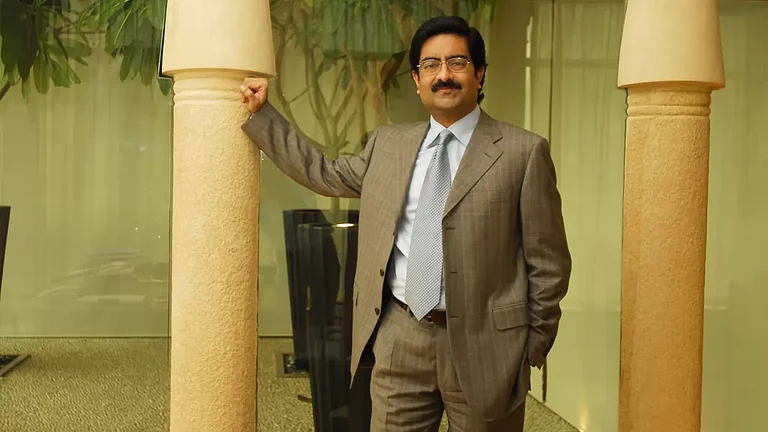How crucial do you think is it for companies to ensure all-round well-being?
Mental health remains an imperative aspect of well-being, both in the workplace and outside of it, due to its profound influence on overall productivity, relationships and quality of life. In today’s corporate landscape, the significance of mental health cannot be overstated. It is clear that there is a direct connection between employee well-being and organisational success.
Our nationwide survey—Silent Struggle—revealed that the stigma attached to mental health in India is a major obstacle. Many employees are reluctant to reveal their mental health struggles due to concerns about facing discrimination or other repercussions. Both employers and employees often lack adequate awareness and understanding of mental health issues.
Since Covid-19 at Mpower we work with over 50 corporates in India driving their mental health initiatives and programmes and we have seen firsthand how fostering a supportive environment not only enhances individual growth but also drives overall performance.
The World Health Organisation highlights that every dollar invested in mental health treatment yields a return of $4 in improved health and productivity. Conditions like chronic stress, anxiety or depression can manifest in physical symptoms such as headaches, digestive issues and increased vulnerability to illnesses, which need to be addressed by providing tools like counselling.
Read: Anxious, Exhausted, Sinking: Why Young Indians Are Struggling at Work
We have also observed a notable cultural shift post-pandemic. Many young professionals are now embracing a balanced lifestyle that prioritises health and mental well-being. With India having the largest youth population, it’s imperative for organisations to address these changing priorities.
Mental health initiatives should be integrated into ongoing employee engagement programmes, rather than being seen as one-time events. This sustained commitment helps employees manage workplace stress effectively and cultivates a culture of openness and support.
What are the best practices which Indian companies can bring into their work culture which will help in resolving stress?
If we look at the changing times, hustle culture, higher dependence on technology and a younger workforce prioritising work-life balance have transformed the work environment drastically. To address employee stress, social media-driven anxiety, tech addiction, Indian companies must also adjust their policies to reflect the diverse needs of their workforce. Even gender roles defined by culture in companies can encourage or deter an individual to express their mental health.
In India we do have policies. The Occupational Safety, Health and Working Conditions Code, 2020 emphasises the importance of mental health in workplace safety. The National Mental Health Policy, 2014 recognises the need for mental health promotion in workplaces. Despite the existing laws and provisions, there is scope for much more Here are some other actions that can be undertaken by organisations to aid in overcoming the stigma:
Continuous employee education and sensitisation that include adopting a proactive approach can help prevent minor mental health concerns from escalating into major challenges. By taking steps to protect employees’ mental well-being, employers show they genuinely care about their workforce. which in turn can lead to improved overall performance and productivity.
Moreover, there’s also a gap in leadership engagement. Leaders rarely share their personal experiences with mental health, missing an opportunity to normalise these conversations and build a more open, supportive work environment.
Physical health check-ups on a regular basis, mental health check-ups or screenings on a regular basis
Further support if needed in forms of access to individual counselling, mental health helplines mental health leaves can be certain measures which can be implemented. While at the same time maintain employee privacy and anonymity.
For an aspirational country like India should employees also be ready to put in more effort to meet the demands of companies?
As India aspires to compete with major economies like China and the United States, it’s essential for employees to embrace a mindset of growth and adaptability. However, this doesn’t mean that individuals should simply work harder without support. Instead, the focus should be on working smarter and more collaboratively.
Our survey at MPower found that around 42% of the working population in India strongly agrees that they feel stressed because of their job. A slightly higher proportion believes that work pressure has increased in recent times due to an increase in attrition rates.
Some of the major reasons for work-related stress reported by respondents were long working hours, high job demands, lack of job security and poor work-life balance and this is because as the world is becoming smaller, the accessibility to working in different time zones has increased. Organisations of a global scale tend to have work occurring 24x7 and teams are co-ordinating with each other across the globe.
This could lead to overlapping of time zones and may stretch the amount of time an individual invests in work. Dependence on each other to get the work done could push the boundaries of employees.
All of this has led to the work becoming demanding and the experience of stress may increase but how much stress is experienced would depend from person to person. I feel that today the focus has shifted from purely workload-related stress to concerns about work-life balance, personal well-being and mental health.
While occasional overtime may be necessary in a global economy, it is generally not advisable to consistently work extended hours due to the negative impacts on health; instead focus on creating flexible and inclusive work environments that can meet global demands without sacrificing employee’s holistic well-being.
To address employee stress, social media-driven anxiety, tech addiction, Indian companies must also adjust their policies to reflect the diverse needs of their workforce
Should managers be trained better to deal with the demands of younger employees who have grown up in a different era?
If we look at research data, this generation prioritises mental well-being, personal growth and meaningful experiences. For instance, a Deloitte study found that 61% of Gen Z values a company’s commitment to mental health in their job choices.
We have to realise that having grown up in hustle culture, Gen Z is more experimental and creative in their work approach. A LinkedIn report also highlights that 76% of Gen Z wants continuous learning opportunities.
Organisations that provide multiple work benefits like information on mental health issues through authentic sources, training programmes like mental health first-aid courses, special leaves for poor mental health and many more can earn major brownie points with them.
How can leaders ensure that their companies have an open environment where anyone can seek help?
The best way to do this is that the leaders themselves must champion an open and supportive environment, where seeking help is normalised. By openly discussing their own mental health experiences, leaders can humanise the conversation and inspire employees to do the same.
Comprehensive mental health training for all staff, particularly managers, is crucial. This equips teams to recognise distress signals and provide authentic support. Creating safe spaces for confidential discussions reinforces a culture of trust and openness.
Awareness campaigns can further dismantle misconceptions about mental health, while regular check-ins demonstrate genuine concern for employee well-being. Implementing employee assistance programmes (EAPs) offers vital resources when employees need them most.
If we keep encouraging individuals to prioritise self-care through mindfulness, physical activity, hobbies and adequate rest these can prevent the escalation of mental health issues. Ultimately, mental health is fundamental to both personal and professional well-being.
What kind of collaborations do you think the industry needs to make with academia to train youngsters in dealing with the corporate environment?
We need to understand that the challenges Gen Z faces are environmental sustainability, mental health and social equity, which requires curriculum that looks beyond academic skills—they require emotional and social intelligence to collaborate effectively across cultures. The focus should be on inclusive classrooms that emphasise empathy, cooperation and communication. To effectively prepare young professionals for the corporate environment the gap between theory and practice must shrink.
The way forward is when focusing on mental health, practical experience, soft skills, mentorship and continuous training, we can create a competent and resilient workforce ready to meet future challenges.
Research from the National Association of Colleges and Employers indicates that 70% of employers prefer candidates with internship experience. Collaborating with businesses to provide structured internships enhances students' practical skills and workplace navigation.












